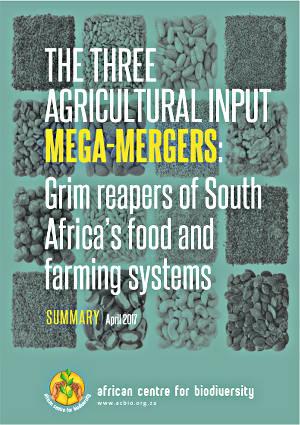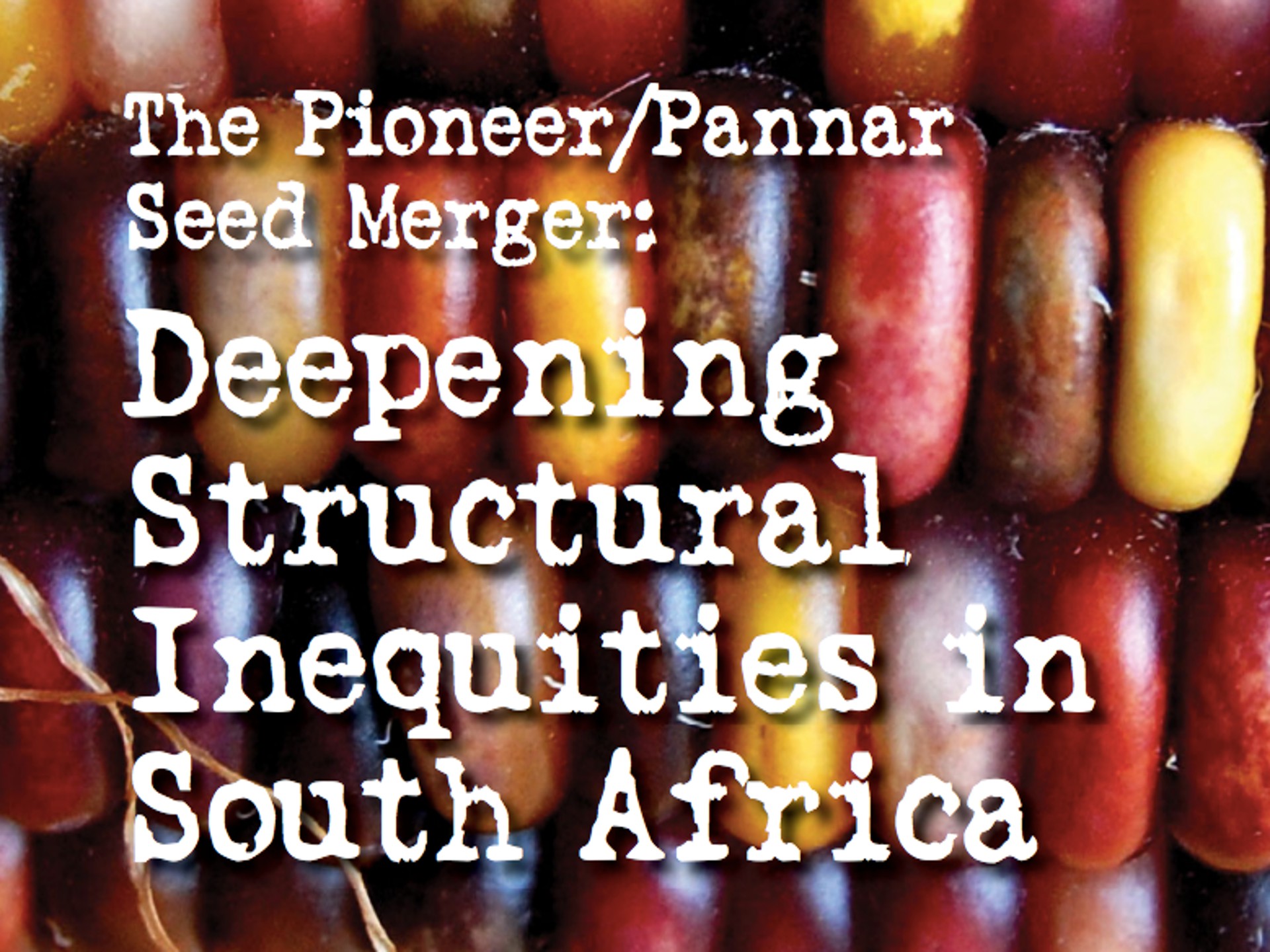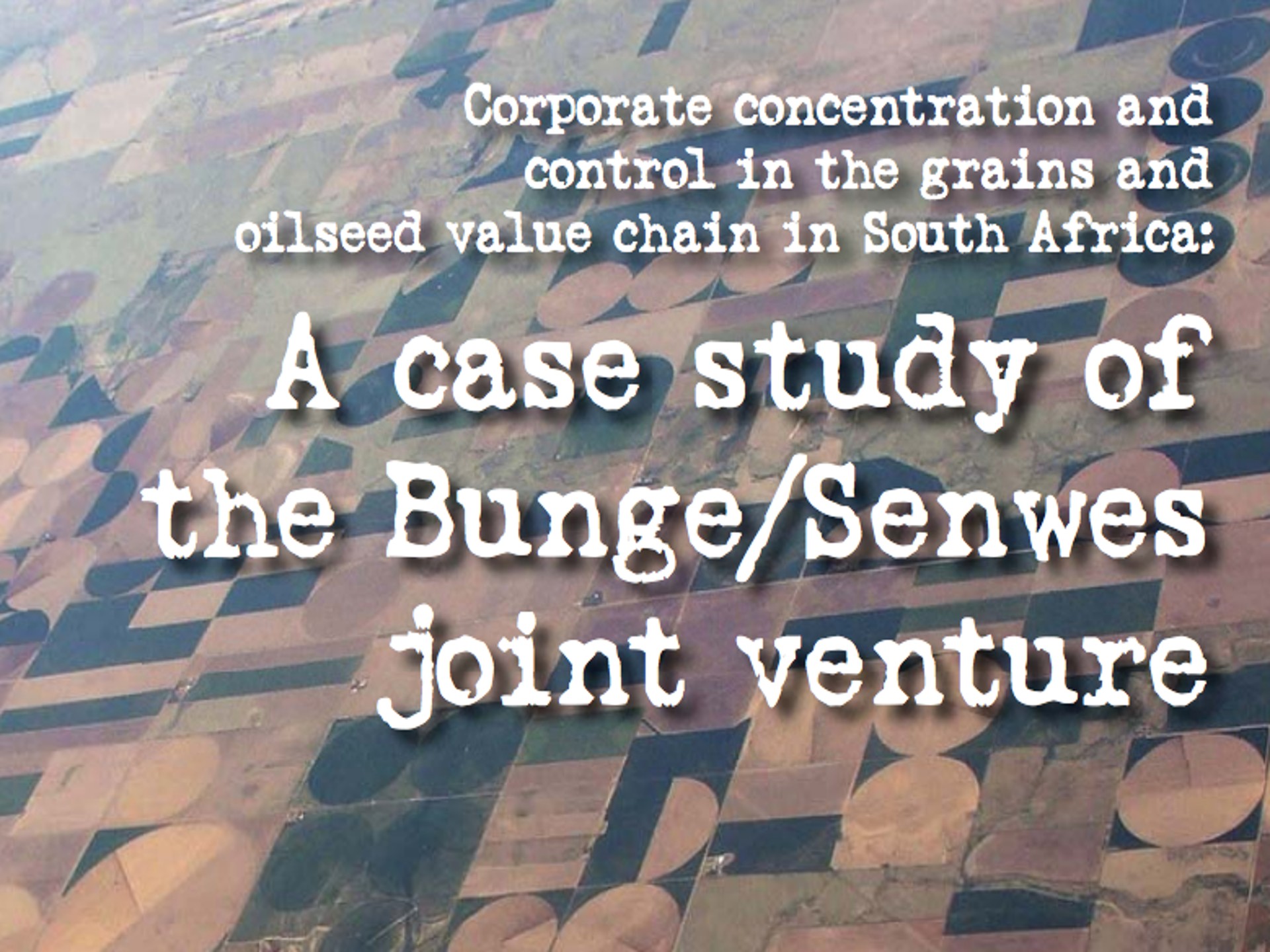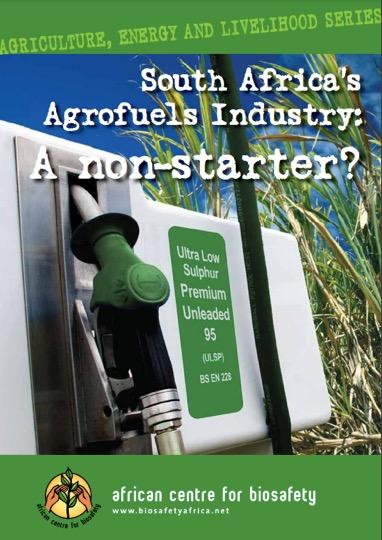Latest Resources

30 September 2020
Nature-based solutions or nature-based seductions?
Clique aqui para a versão portuguesa Por favor, haga clic aquí para el español Unpacking the dangerous myth that nature-based solutions can sufficiently mitigate climate change The Third World Network and the African Centre for Biodiversity are pleased to share with you a new briefing paper: Nature-based solutions or nature-based seductions? Unpacking the dangerous myth […]

21 October 2019
Transforming the farm input support programme (FISP) to diversified agroecology practices in Mong...
This fourth briefing in a series of four highlights key issues raised at a farmer exchange and learning event held in August 2019 in Mongu District, Western Province, Zambia. Namushakende Farming Institute (NFI) hosted the field visit and dialogue together with the Zambia Alliance for Agroecology and Biodiversity (ZAAB), Kasisi Agricultural Training Centre (KATC) and […]

14 October 2019
Transforming the FISP to diversified agroecology practices, Pemba District, Southern Province, Za...
The third in the series of four farmer exchange meetings in Zambia took place in July, in Pemba District, Southern Province. Through a partnership between the African Centre for Biodiversity (ACB) and the Zambia Alliance for Agroecology and Biodiversity (ZAAB), Kanchomba Farming Institute (KFI) hosted the field visit and dialogue, together with Kasisi Agricultural Training […]

2 August 2019
Transforming the Farm Input Support Programme (FISP) to diversified agroecology practices in Shib...
This is a second briefing paper to come out of farmer exchange events held in Zambia in May. The first exchange took place in Kalulushi District, Copperbelt Province, and you can find that briefing paper here. Then a second exchange was convened in Shibuyunji District, Central Province, where the objective was to continue sharing ideas […]

23 July 2019
Moving from the Farm Input Subsidy Programme (FISP) to Agroecology in the Kalulushi District, Cop...
This briefing highlights key issues raised at a farmer exchange and learning event held in May 2019 in Kalulushi District, in the Copperbelt Province of Zambia. The overall objective of the meeting was to share and exchange ideas on transitioning to a smallholder support system for diversified agroecological farming. Participants discussed the roles that farmers, […]

5 July 2017
Decolonising Food Systems and Sowing Seeds of Resistance
The briefing paper challenges us to reclaim our connection to seed, food and each other and to engage in new food politics. Download pdf.

11 April 2017
Mega-mergers: 3 giant corporations controlling South Africa’s food and farming systems
This briefing deals with the three mega mergers taking place in the agriculture sector as Dow Chemical and DuPont are set to merge, China National Chemical Corporation (ChemChina) is to acquire Syngenta and Bayer is to acquire Monsanto. The proposed Bayer-Monsanto merger will give control of almost 30% of the world’s commercial seed market and […]

13 September 2012
The Pioneer/Pannar seed merger: deepening structural inequalities in South Africa
In this briefing, we deal with the Pioneer/Pannar seed merger, outlining the evidence led by the ACB in opposing the merger, what is at stake for South Africa if the merger is approved and the extent to which the merger will deepen structural imbalances in the South African economy. Read the briefing here.

3 October 2011
Corporate concentration and control in the grains and oilseed value chain in South Africa: A case...
The Bunge/Senwes joint venture signals the first significant investment by Bunge in Africa. Bunge is one of the world’s largest and most influential corporations and is amongst a handful of companies dominating global trade in agricultural commodities. Senwes holds a dominant position in the South African market for the storage and handling of grain crops. […]

24 March 2011
South Africa’s Agrofuel’s Industry: A non-starter?
This paper provides a brief overview of the biofuels industry in the context of the South African government’s 2008 policy. Our key finding is that the large-scale biofuels industry has stagnated almost to the point of non-existence. There is, however, a growing impetus to address the shortcomings in government policy that has held the industry […]
